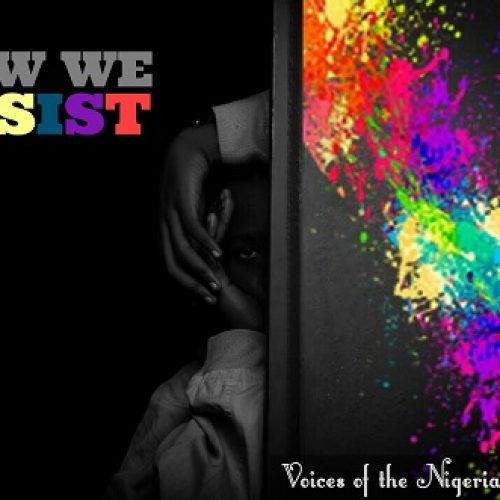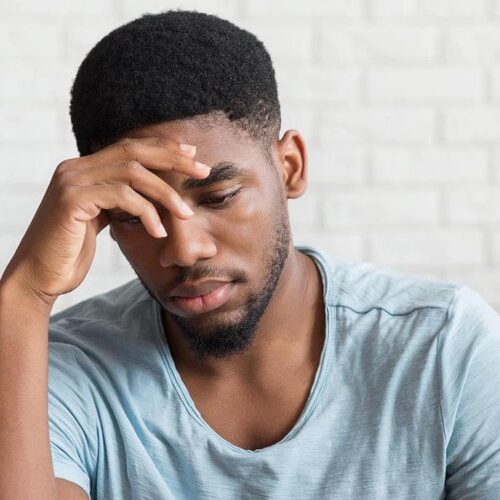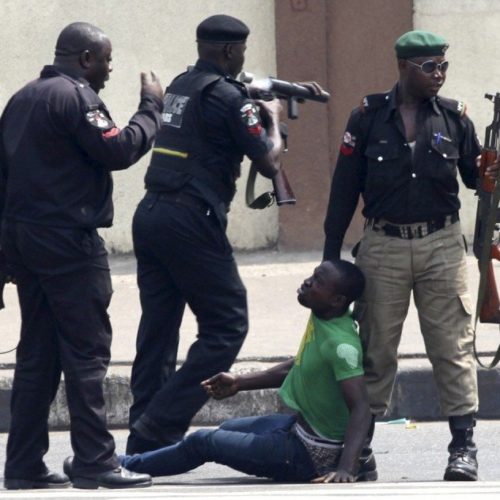What Bisi Alimi Has To Say About The United States’ Special Envoy for LGBT Human Rights
In a piece titled ‘Why I Oppose the United States’ Special Envoy for LGBT Human Rights’ which was originally published on the dailybeast.com, Nigerian gay activist Bisi Alimi states his stance on the recent appointment of Randy Berry as Special Envoy for gay rights.
Read below.
*
The appointment of Randy Berry as Special Envoy for LGBT Human Rights drew praise from U.S. LGBT activists. Those of us outside the U.S. are less enthusiastic.
In February, the U.S. State Department announced that longtime diplomat Randy Berry would be appointed as the first Special Envoy for the Human Rights of LGBT Persons to help eliminate violence and discrimination against LGBT people worldwide. This appointment has been widely applauded in the United States, but many of us outside the U.S. are concerned that it may be more symbolic than substantive—and that, in fact, the symbol may be a negative one.
To be sure, the Obama administration has been the most pro-LGBT in American history. Most recently, in his 2015 State of the Union speech, Obama became the first president to say the word ‘transgender’ at a high-profile event. He signed an executive order last summer barring government contractors from discriminating against LGBT employees. LGBT health care disparities were addressed under his Affordable Care Act.
So it is encouraging that the Obama administration now wants to take a leadership role in ending the abuse and torture of LGBT people globally. There is much work to be done: The laws in more than 78 countries in the world criminalize same-sex relations and more than 10 of those include the death penalty. And the situation is only getting worse in many countries, from my home country of Nigeria to Russia, Malaysia, Malawi, and Jamaica.
Is a special envoy the answer? I do not believe so.
Special envoys are similar to ambassadors and can conduct negotiations that other diplomats may not have the time, expertise, or status to do, and they are not held to slow bureaucratic channels. They are usually appointed to address high-stakes conflicts that require concentrated attention, but occasionally they are appointed to signal that an issue is important to the president.
But there are four reasons why a special envoy could be counterproductive.
First, so much work is already taking place, especially since former Secretary of State Hillary Clinton directed the State Department to advocate for the protection of the human rights of LGBT people in 2009. LGBT equality is being integrated into the State Department’s work, via the Global Equality Fund, several programs within the Department of Democracy, Human Rights, and Labor, and elsewhere. So why is this role needed?
Second, why the focus on LGBT equality specifically? We do not see special envoys on issues like gender violence, indigenous people’s rights, or poverty—usually envoys focus on issues jeopardizing peace—so why do LGBT rights require one? There is a risk that the envoy makes LGBT rights seem like “exceptional” rights that need exceptional attention, which could be counterproductive.
Third, one concern often raised about the envoy position is that it’s a way of “responding symbolically to congressional or public pressure rather than representing the administration’s serious commitment to address a challenge.” This is a concern I share. Although it is too early to tell, the envoy position runs the risk of being purely symbolic.
LGBT activists in Africa have long had to debunk the idea that homosexuality is something white people in Western countries do, that is then imported into African countries.
Fourth, the symbolism may actually be the wrong symbolism. The fact is that Berry is a white man—as will be his U.K. equivalent, if opposition leader Ed Miliband wins the May 7 election and appoints Lord Michael Cashman as his LGBT envoy, as promised last fall.
The envoy could run the risk of looking like (and being) a white person trying to save brown and black LGBT people from their brown and black oppressors. LGBT activists in Africa have long had to debunk the idea that homosexuality is something white people in Western countries do that is then imported into African countries. Thus the whiteness of the Western special envoy could reinforce this and create more challenges for black LGBT activists.
What are the alternatives?
First, bold and concrete actions, like banning a president who abuses human rights from entering the U.S., and not being friendly with them either. (I have not forgotten the first U.S.-African summit where President Barack Obama was seen taking pictures with Yayah Jammeh of Gambia or Goodluck Jonathan of Nigeria, two African leaders with terrible human rights records.) We should create visa bans for individuals or organizations involved in the spread of homophobia or who have taken a lead in the enactment of laws that will criminalize LGBT people. We also need to truly take human rights into account in trade agreements.
I would also like to see the U.S. create more mentorship, collaboration, and support for LGBT people risking their lives to change their countries, to have an approach that is driven by the countries with whom it is working. Examples of people in need of support are Maurice Tomlinson of Jamaica, who works to support homeless LGBT people, Nisha Ayub, who works to improve the lives of transgender individuals in Malaysia, and Jabu Pereira of South Africa who focuses on the intersectionality of race and sexuality. (I participated in The Daily Beast’s Quorum: Global LGBT Voices program with the three of them.)
Global South leaders hold the key to solving increasing homophobia in their own countries, and their work could be strengthened by financial support from the U.S. From the announcement about the special envoy, it sounds like support for activists and community groups will be a possibility and I urge that it be a priority.
To be sure, I am not completely against the special envoy idea, and perhaps I will be pleasantly surprised by the outcomes. But I also believe that these would be more proactive ways for influential and powerful countries like the U.S. to challenge and fight homophobia globally, without adding to the burden of the activists on the ground.
If the U.S. is sincere about tackling homophobia, it needs to stop friendliness with and support for governments that are criminalizing their people and it needs to listen to those who are fighting homophobia—often by risking their own safety and well-being—and support them.










17 Comments
Ace
March 13, 07:26Hmmm
Dennis Macauley
March 13, 07:27I love you Bisi but i disagree with certain points raised. There are bigger issues at play here thay have to be taken into consideration here.
For example the USA has economic interests in some of these countries eg Nigeria; American companies operate here, we have strong bilateral mutually beneficial trade lines. Obama cannot issue a visa ban to GEJ and those senators who pushed the bill. Nigeria is a sovereign country, overtures may be made but ultimately the decision to reverse this trend must come from within Nigeria itself.
I do agree that a special envoy may come across as saving “special people” like that time vogue put only black models on its cover. It was counter productive and further strengthen the stereotype that these are “special people” who need special help. “Special” as we know it may be good or bad.
However i think the appointmemt is a good step because the war against homophobia will be won by diplomacy and not by arm twisting. Premised upon this a special envoy that will be involved in diplomatic lobbying for LGBTI issues ONLY is a good idea if you ask me.
Pete
March 13, 07:30DM just echoed my thoughts perfectly
pinkpanthertb
March 13, 07:30Perhaps the special envoy should have been a black man? #justsuggesting
Dennis Macauley
March 13, 07:37I disagree! It musnt be a black man, it should be someone who can do the job black or white, someone who can be respected in diplomatic circles. If a white man can do it let him have the job.
pinkpanthertb
March 13, 07:42Relax, dennis, I wasn’t toeing the racist line here. I was talking based on Bisi’s pointing out the the perception of Nigerians of the white man special envoy might be exacerbated especially given that they already think homosexuality a disease of the West.
So I was merely saying (tongue-in-cheek, I might add) that will the colour influence this perception should the envoy be black?
Silvery Cat
March 13, 08:24Africa is still deep in the dark ages that if GEJ should per chance, come out gay, we’ll chuck it up to demon possession. To the average Nigerian even the educated ones especially Psychiatrists who ought to know better, homosexuality is a sin…no not just a sin but a malady or an effect of demonic possession. So saying a black man is better suited for the job so that Africans can relate is a waste of time. Look at how they despise my Beloved Bisi *dabs at eyes with scented handkerchief, careful not to ruin the make-up*. Black or White, whosoever is best for the job should do it.
Max
March 13, 10:05“I would also like to see the U.S. create more mentorship, collaboration, and support for LGBT people risking their lives to change their countries, to have an approach that is driven by the countries with whom it is working”
That line there looks too “self-serving”
Blacks think everything should all be handed down to them.
LGBT opression will not end in Africa anytime soon. (Not to put anyone in a depressive state or anything), but we have to be realistic. 99.9% of people I work with are homophobic. The other 0.1% is me. Look around you and you’ll see it clearly. We aren’t educated here. Education is more than just going to school and getting good grades. Most people here still believe in witches and wizards (in don’t believe in such) and that people can hold people’s destiny etc. These are the same people you want to believe that homosexuality is natural.
Before that can happen, we need a generational turnover(Most people from the last generation who are now middle aged/ old, must die). The help we need must come from within. America can’t fight our battles for us.
As long as America has interest in Africa(Economic), it’ll never make any drastic move on the continent concerning LGBT.
Weirdo
March 13, 07:39Bisi, we haff hear you. You made a valid point. But d US cutting off those countries would also be like they r cutting themselves off a chunk of d world. They can’t do that. It would affect their economy nd place a drastic strain on their country nd ppl. Imagine cutting off their ties from d middle east, na die oh. The US is just being diplomatic in their approach.
The change we want has to start 4rm within. We shall have a few martyr, yes!!! But we shall get there. Imagine if Martin Luther King Jnr had to wait 4 outside help……………… Your guess is as good as mine.
Ur request may occur or granted on d last return of d Lord…….
Ruby
March 13, 07:40Appointing a white Special Envoy! Really? Way to go to reinforce peoples beliefs That Homosexuality is a Western influence.
Looking from his point of view, I support the bannning of presidents of homophobic countries from gaining access into the US and also cutting aid *tho that would hurt our fight againt HIV*.
Maybe that would open their eyes to see the LGBTIQ as humans and not abominations.
Silvery Cat
March 13, 08:17Hear hear, there he goes again my knight in shining armour. There’s just something about an educated man discussing topical issues that makes my heart go pitter-patter. My dearest Bisi, eloquent as ever. The hot-listing of GEJ and his cohorts may be a bit highhanded and I think I’m in support of the idea of the best man doing the job regardless of colour. However, I must say that there are truly more pressing issues than LGTB, Gender Inequality and it’s cousin Violence Against Women are more of a threat to World Peace than Gay Rights. But like Bisi said and I paraphrase, “Let’s watch and see how it goes”.
trystham
March 13, 10:45While gender violence and indigenous ppl’s rights has not got a special envoy, the world has stood up strongly against the violation of these especially in recent times ie Chibok girls (remember boys were murdered in the same Nigeria, nobody remembered), and ‘Je suis Charlie’ episode. There has not bin a world wide support for LGBT rights. I do not understand d politics, but I feel this is an okay step. The special envoy can take up all suggestions he has made
Khaleesi
March 13, 11:45I applaud this move by the US Government! They have boldly come out to show total support with no equivocation for the rights of gays. Love it! As Bisi pointed out the appointment of a white gay man might serve to reinforce the notion that homosexuality is a white disease imported into Africa. I also think that imposing bans and travel restrictions on leaders who go out of their way to torment gays and other sexual minorities is a very effective tool, as many of these leaders own homes, operate bank accounts as well as have close family members living within the safety and security of the US. Denying them access will serve as a very loud wake up call that even if they dont like gays, they can learn to tolerate rather than actively pursue and persecute them. Nice one Aunty Bisi ***biting nails and batting eyelashes in excitement***
kendigin
March 13, 11:55Please vote Buhari for a chance to change lgbt laws
trystham
March 13, 13:11I’m pro-APC and all, but u fucking beliece that?
Gad
March 13, 13:57This sounds like APC,s response to anything the PDP does. You go forward, they shout, no, you go backwards it’s still a no. Bro Bisi have you joined American politics? I ask because I don’t really see any strong point in your objections. Well, I’m too occupied with Nigerian politics to be bothered with what happens in America. I know them and the motives behind their African policies so I don’t look up to them for anything nor like them.
Khaleesi
March 13, 15:41Hian! Gad! Not everything is done with an interior motive! Sometimes there’s a genuine desire to speak out against injustice. Yes, America like all other humanity seeks to advance its interests, but sometimes she genuinely seeks to do good! Whether or not you like her, she has guaranteed (continues to do so) freedoms, liberty and prosperity for millions in a way and manner that Nigeria cannot hope to match even 500 years from now … that is something to be proud of & the fact that millions from all over the world seek to visit or live in or benefit from her educational, cultural and technological institutions is an irrefutable testament to that!!
***sashays away in a glittering Michelle Obama inspired Vera Wang dress***